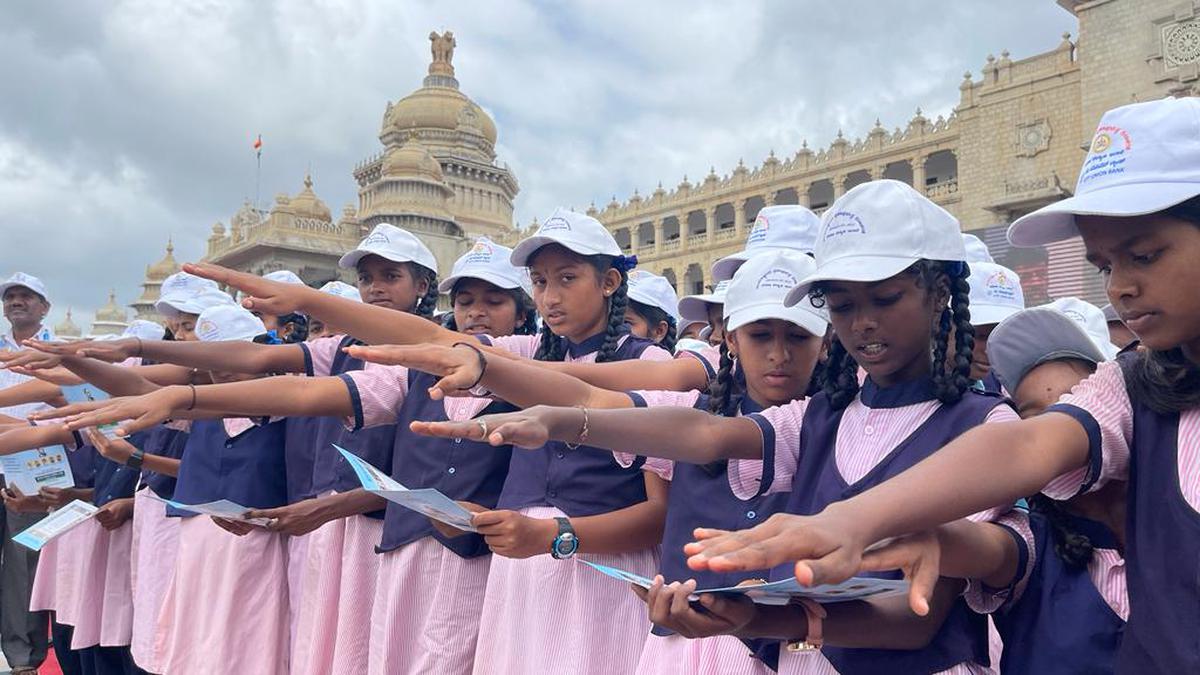
Millions join Karnataka Chief Minister Siddaramaiah in reading preamble of Indian Constitution
The Hindu
The programme has entered the Guinness World Records as more than 2.31 crore people had registered for reading the preamble of the Indian Constitution.
Millions of people across Karnataka joined Chief Minister Siddaramaiah in reading the preamble of the Indian Constitution on September 15. The day is celebrated worldwide as the ‘International Day of Democracy’.
Legislative Council Chairman Basavaraj Horatti, Deputy Chief Minister D.K. Shivakumar, Social Welfare Minister H.C. Mahadevappa, Home Minister G. Parameshwara, other Ministers in the Congress government in Karnataka, and a large number of government employees and students attended the programme held at the Vidhana Soudha in Bengaluru.
The programme began with the Naada Geethe (State song), a Kannada poem composed by the celebrated poet Kuvempu.
Schools and colleges, government offices from the Chief Minister’s office to gram panchayat offices across Karnataka organised the programme to read the preamble.
Minister for Youth Empowerment, Sports and Tribal Welfare B. Nagendra welcomed the dignitaries on the dais. Leaders paid floral tributes to B.R. Ambedkar, who was the chairman of the Drafting Committee which played a major role in writing the Constitution.
The programme has entered the Guinness World Records as more than 2.31 crore people, including bank and corporate employees, had registered for reading the preamble of the Indian Constitution.
Social Welfare Minister H.C. Mahadevappa, who played a major in organising the programme, said the UNO declared the International Day of Democracy in 2007. All democratic countries started observing the day from the year 2008. The day is celebrated with the aim of eliminating inequality to achieve sustainable development.

Former CM B.S. Yediyurappa had challenged the first information report registered on March 14, 2024, on the alleged incident that occurred on February 2, 2024, the chargesheet filed by the Criminal Investigation Department (CID), and the February 28, 2025, order of taking cognisance of offences afresh by the trial court.












